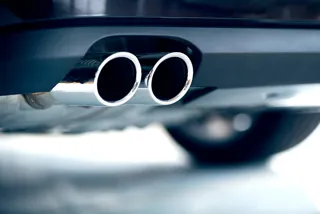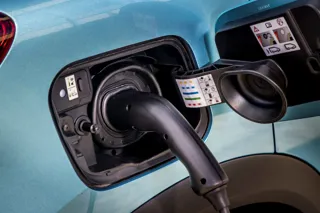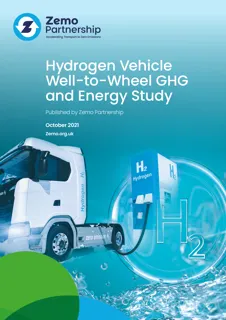Car dependency outside cities must be tackled to reduce carbon emissions, according to a new report from the University of Hertfordshire.
Led by Professor Stephen Joseph, who is also chair of the Smart Transport board, The Future of Transport Outside Cities report highlights how cities dominate research and policy discussions about transport, even though ‘Shire’ counties are responsible for 74% of the UK’s transport emissions.
Despite a reduction in car use during the pandemic, the transport sector remained the largest emitter of carbon emissions in 2020 (at 29.8%). Therefore, transport is key to any strategy aiming to combat climate change, it says.
In many ‘Shire’ counties – which are often made-up of market towns, small villages and in some cases the edges of cities – rural bus services have been cut drastically, leaving few alternatives to private car use.
As a result, these areas see large numbers of single-occupancy car journeys, which leads to high transport carbon emissions per head, explains the report.
In addition to high carbon emissions and car dependency, rural areas also face congestion in towns and social isolation for those without car access.
Professor Stephen Joseph, visiting professor of sustainable ransport and the main author of the report, said: “There is a tendency to think that people outside cities have to drive everywhere, but this leads to high emissions, gridlocked roads, and is isolating for those without their own vehicles.
“This report concludes that car dependency isn’t inevitable and highlights ways this can be reduced in rural areas. Tackling car dependency will have a big impact on climate change.
“Some of these solutions require long-term planning and investment, and the government should support these schemes. But there are other, short-term initiatives – including e-bike hire schemes – that could be adopted by local authorities now and make an immediate impact to rural communities.
“The Government should use their forthcoming Rural Mobility Strategy to better support transport services outside cities, and give councils and communities in those areas more help and funding.”
The report summarises the findings of 12 roundtable discussions led by the University of Hertfordshire’s Smart Mobility Unit, last year.
More than180 people took part from a range of sectors, including national and local government, the transport sector, business, academia, and non-governmental organisations.
The aim was to address and find solutions to transport issues in rural parts of the country. They highlighted several areas where more government support and funding are needed, and showcased initiatives from across the country that could provide immediate solutions, including: on-demand bus services; e-bike hire schemes; improved public transport; and shared transport schemes.
The report also emphasises the need to involve and consult the public when making decisions on local transport provision, particularly after Low Traffic Neighbourhoods were introduced in parts of London at short notice, leading to some backlash from residents.
It also highlights the importance of considering sustainable transport when building new housing, rather than contributing to car dependence.























Login to comment
Comments
No comments have been made yet.